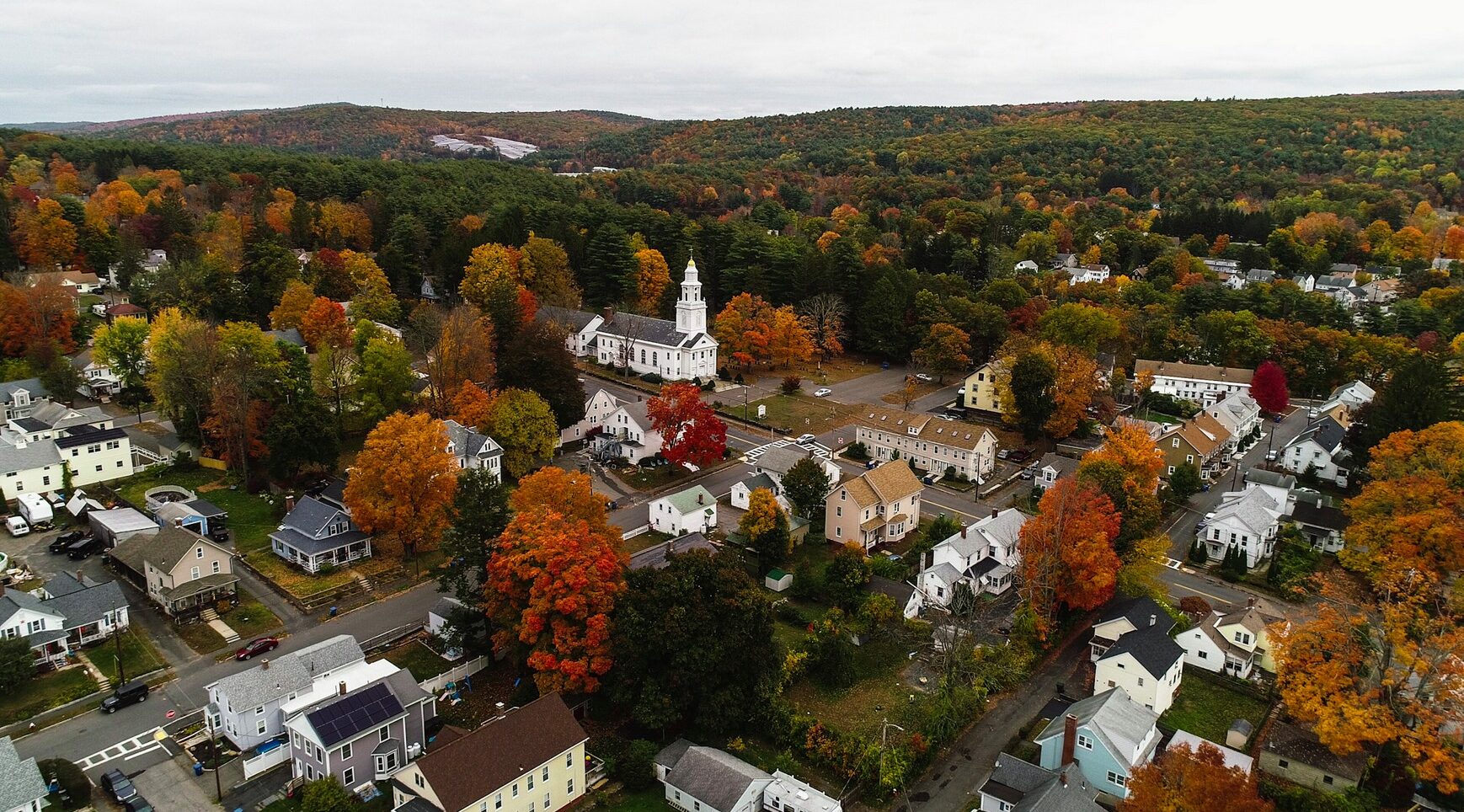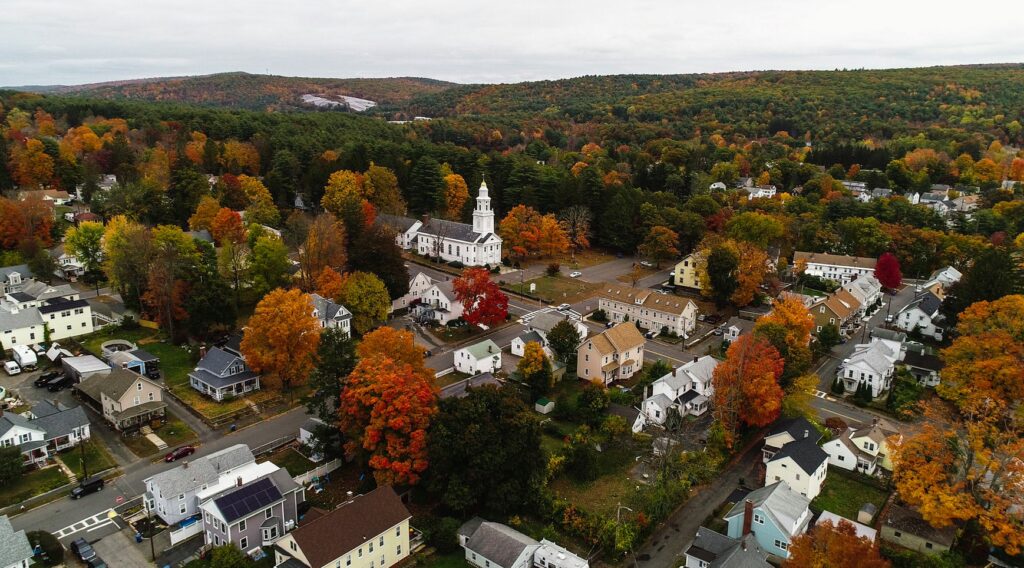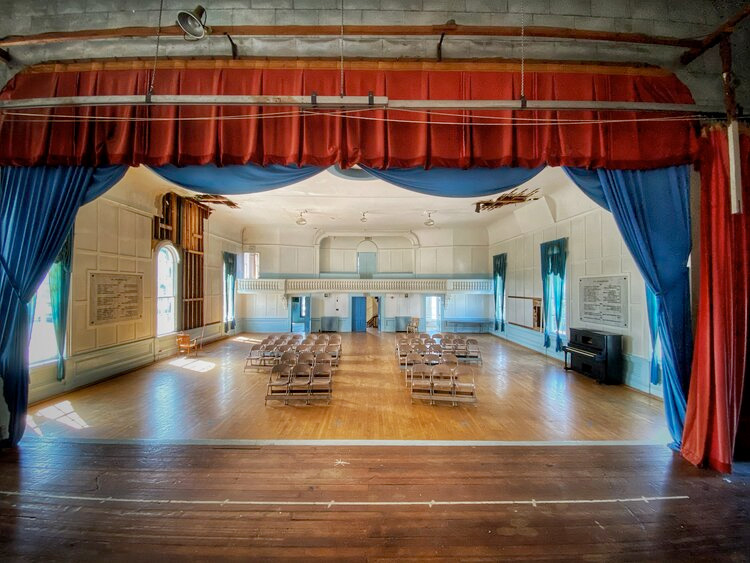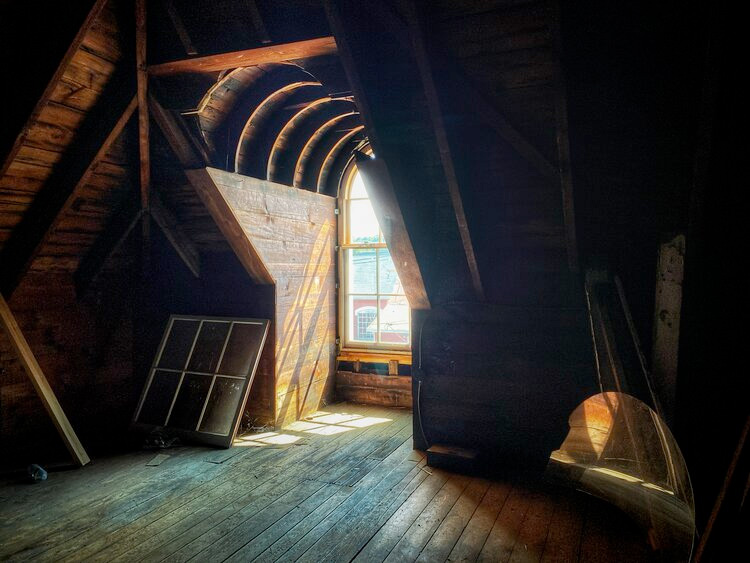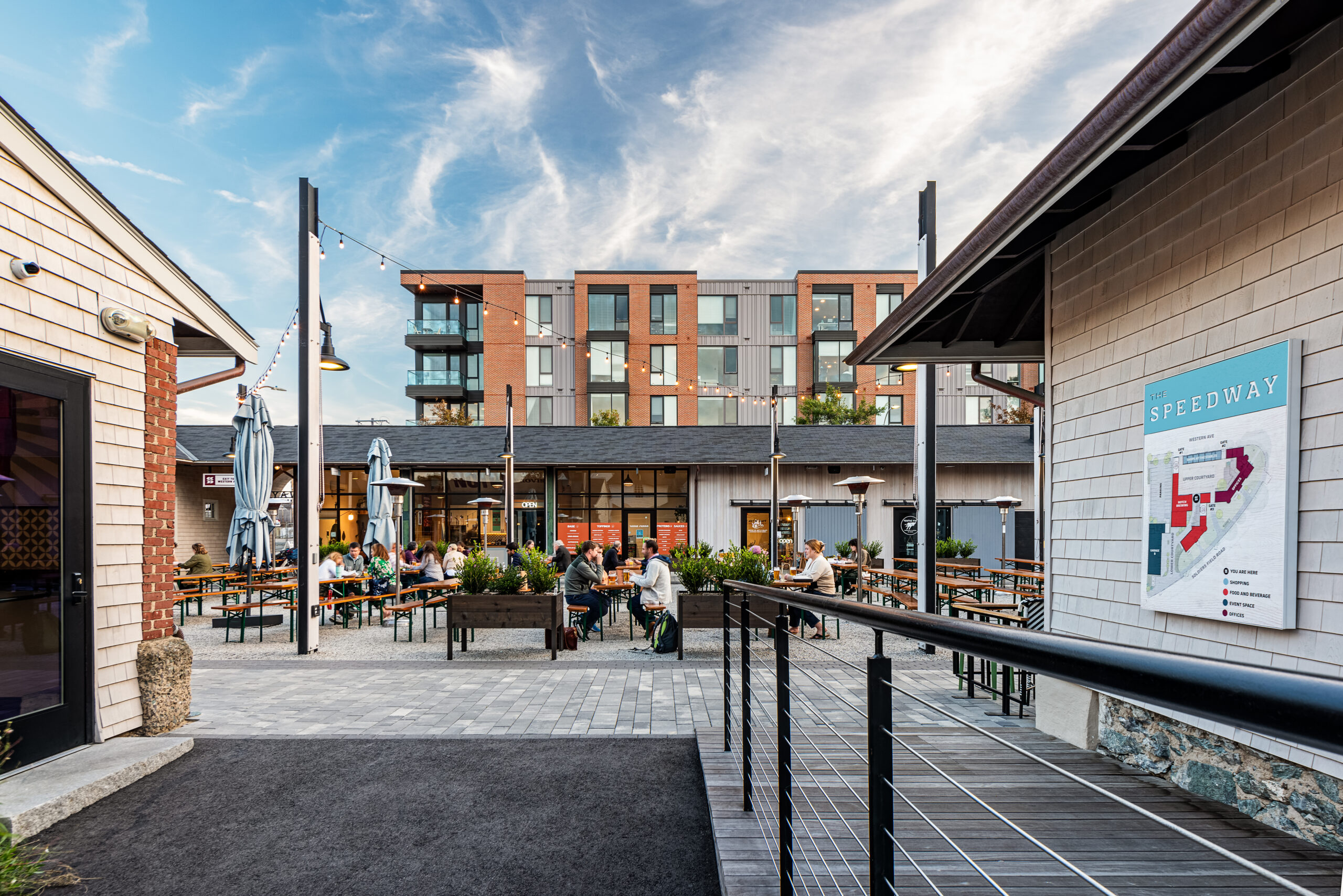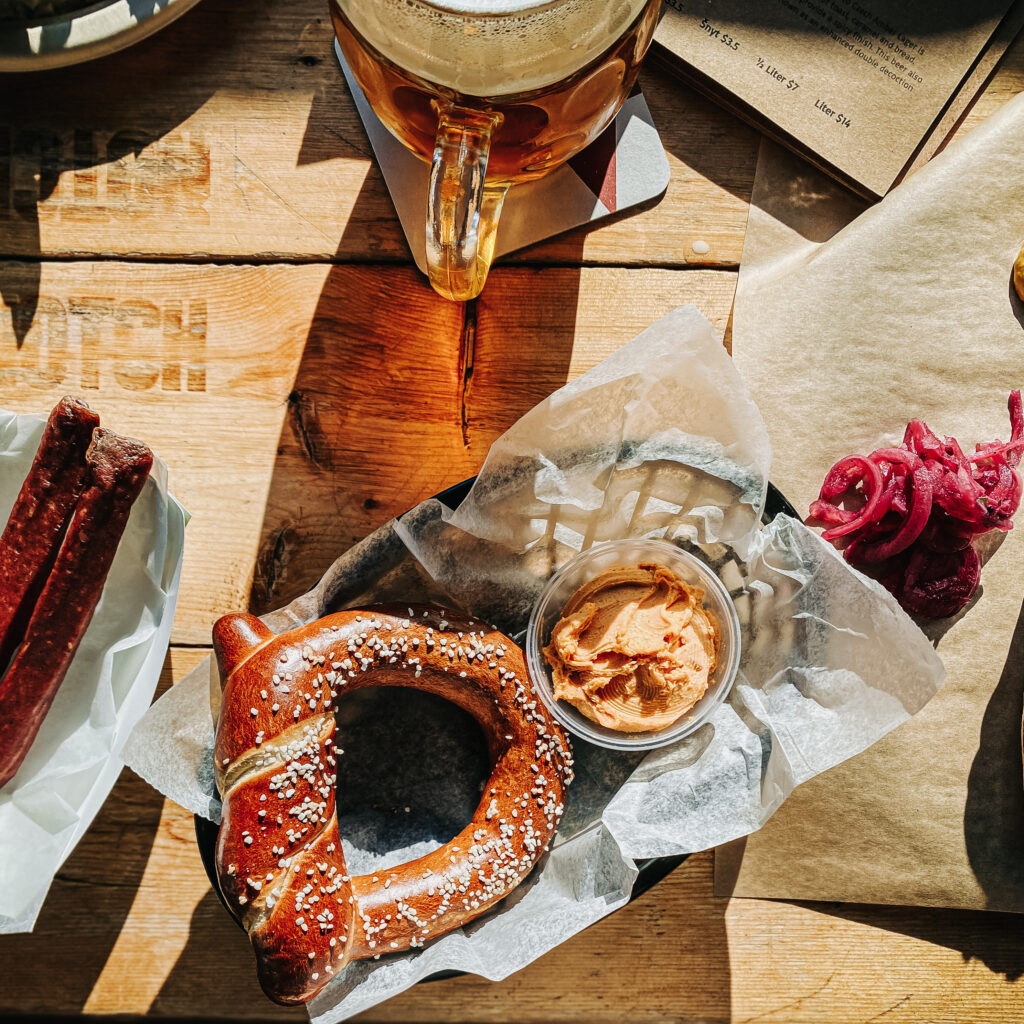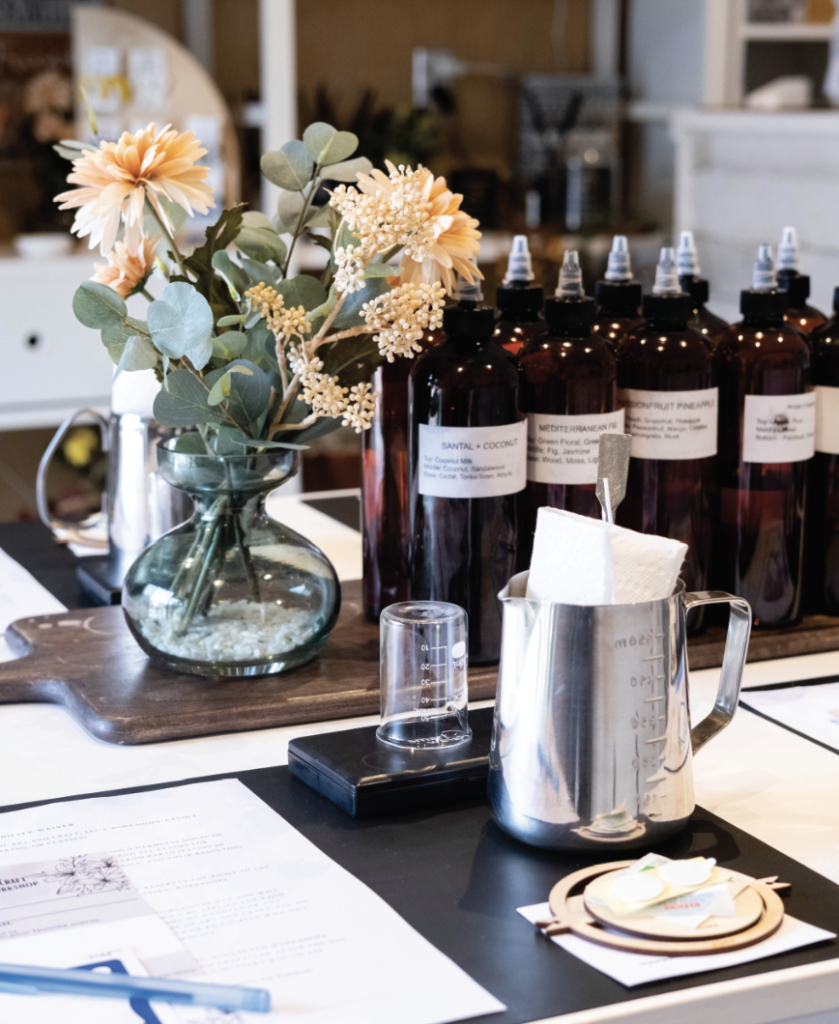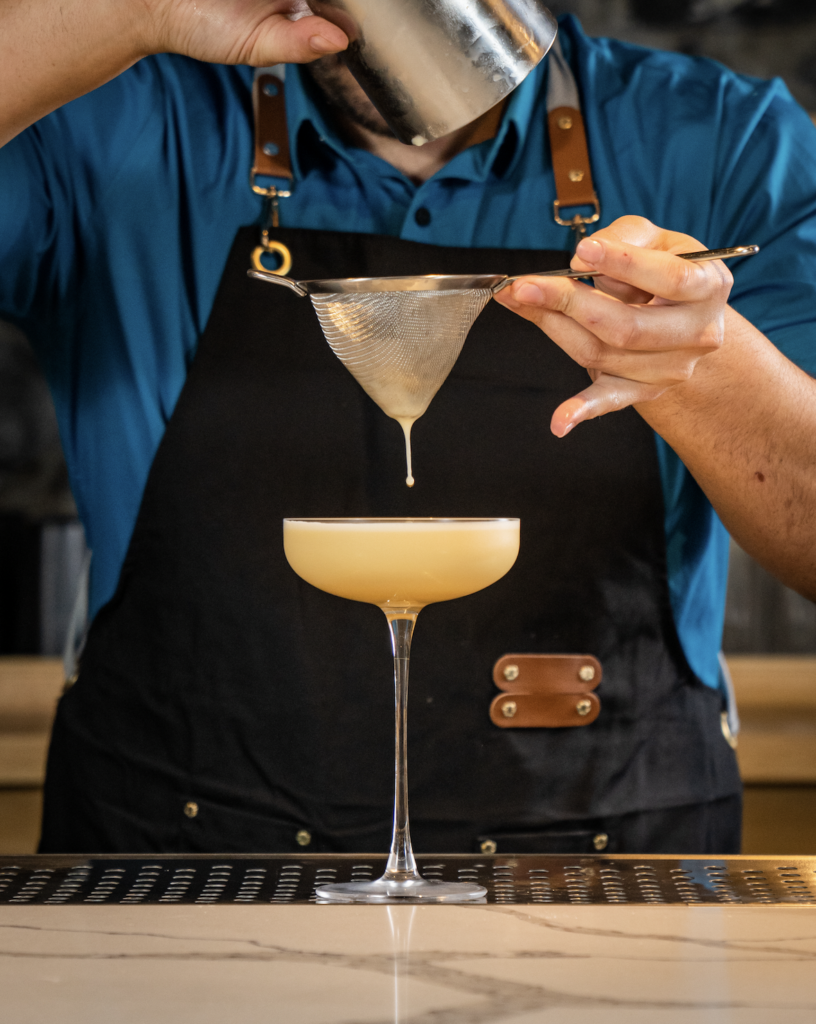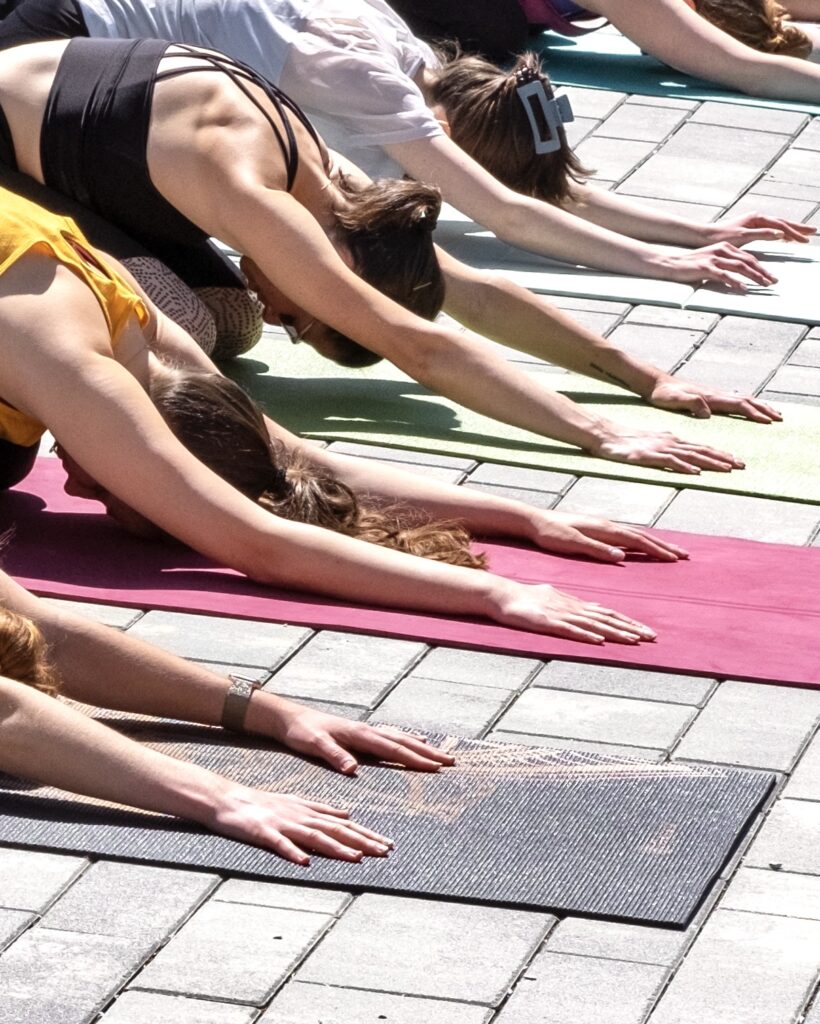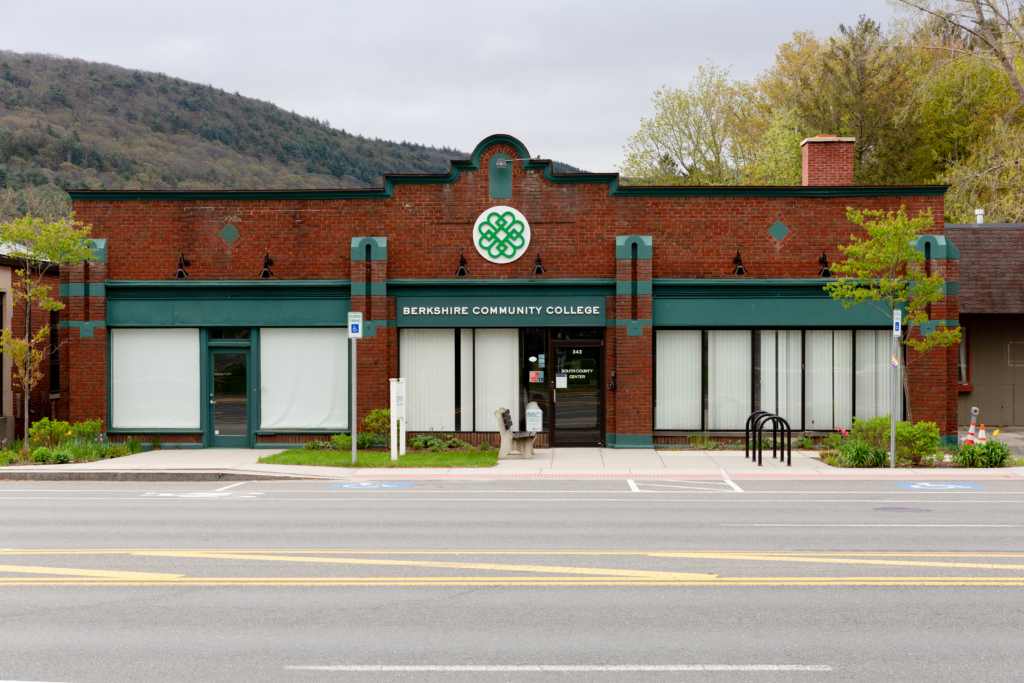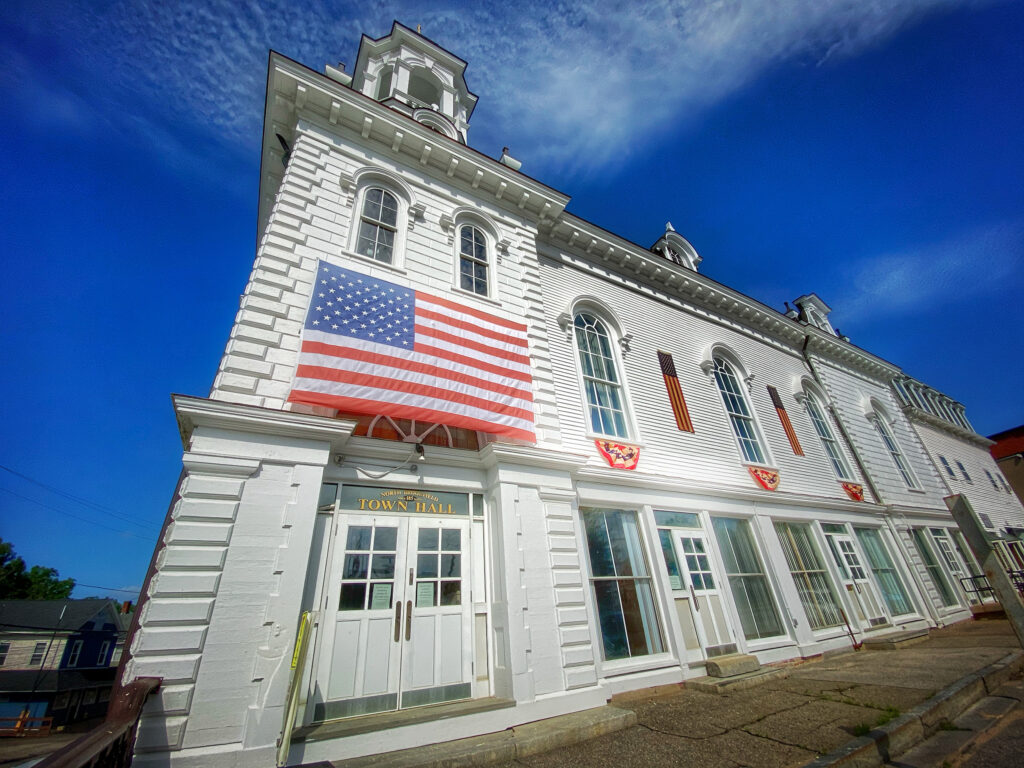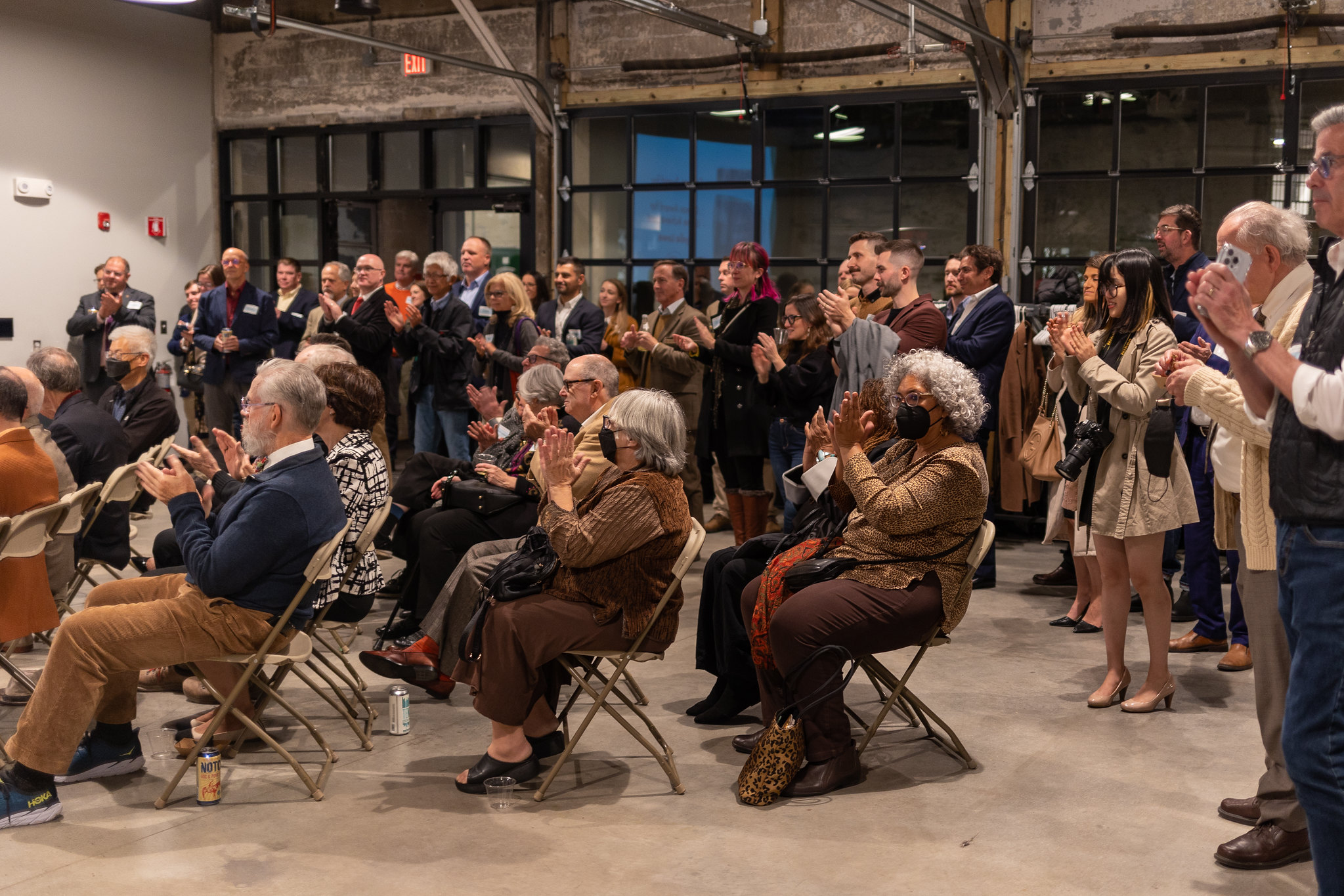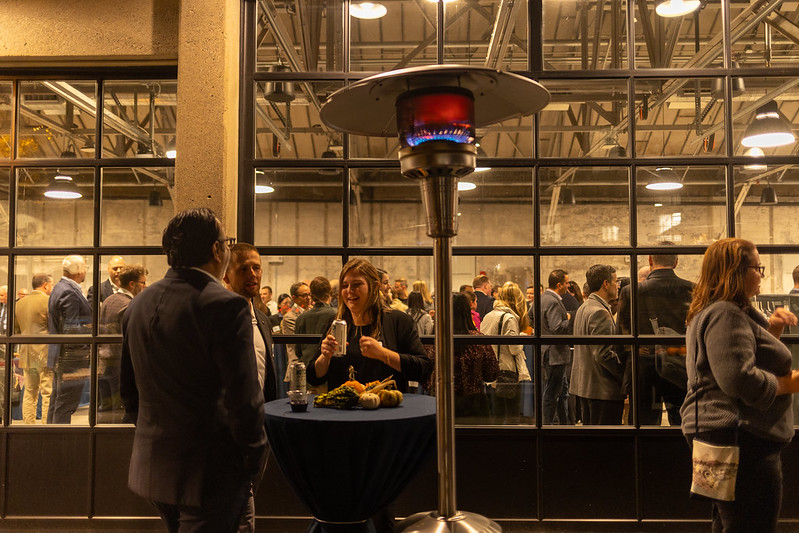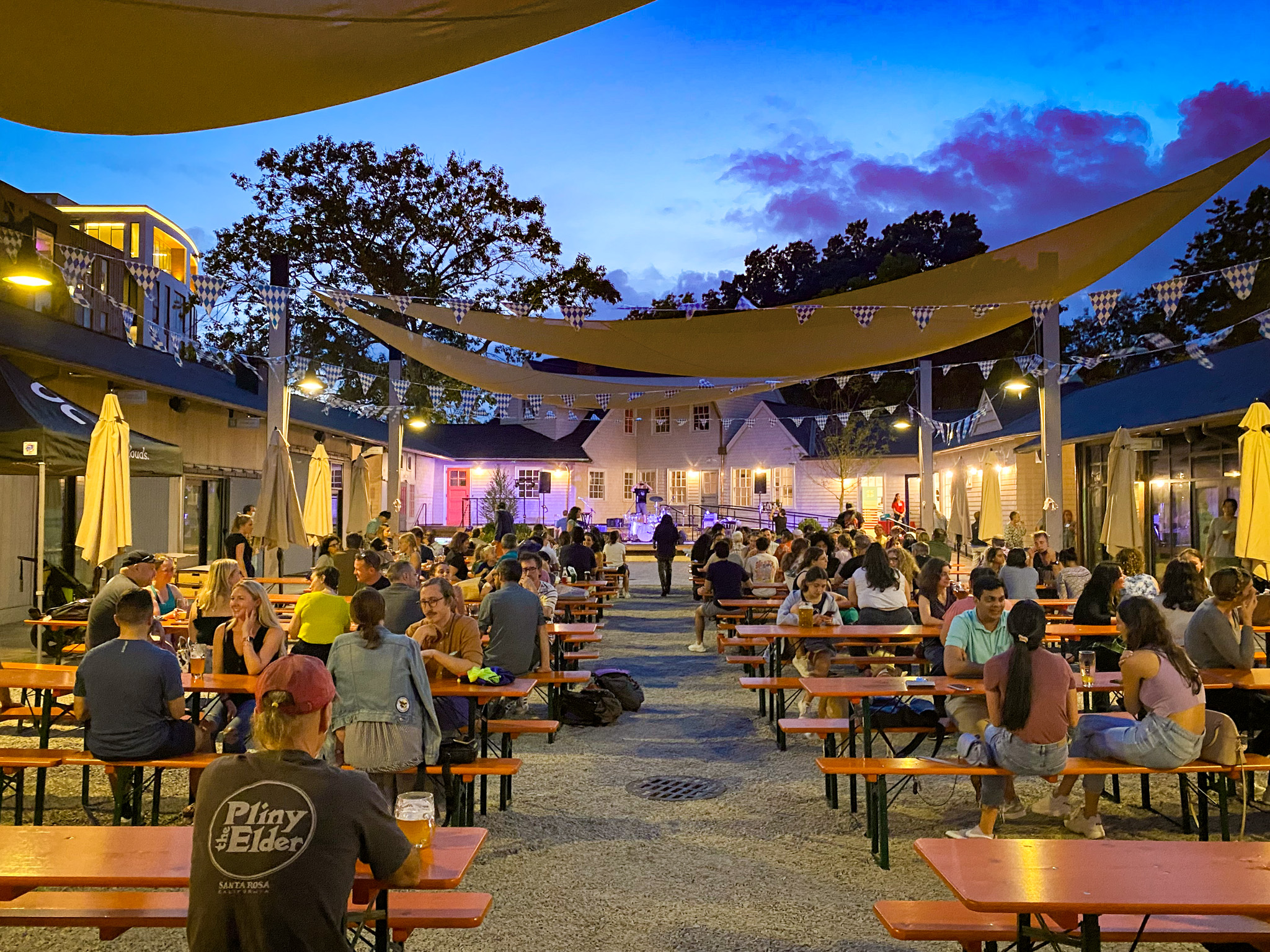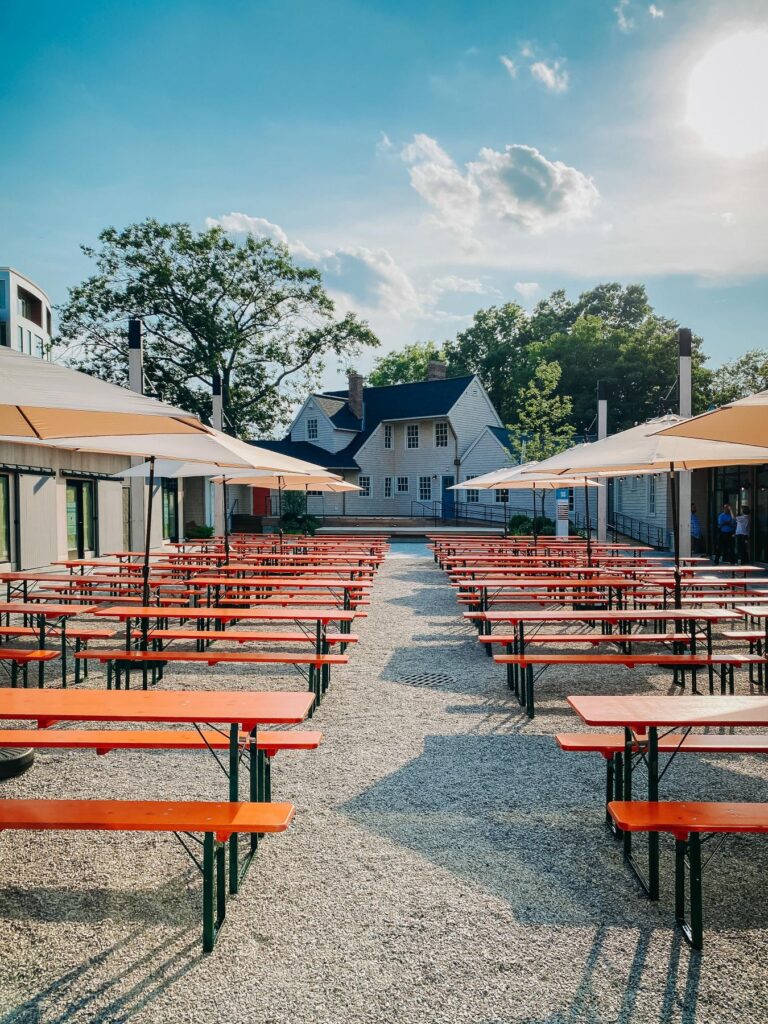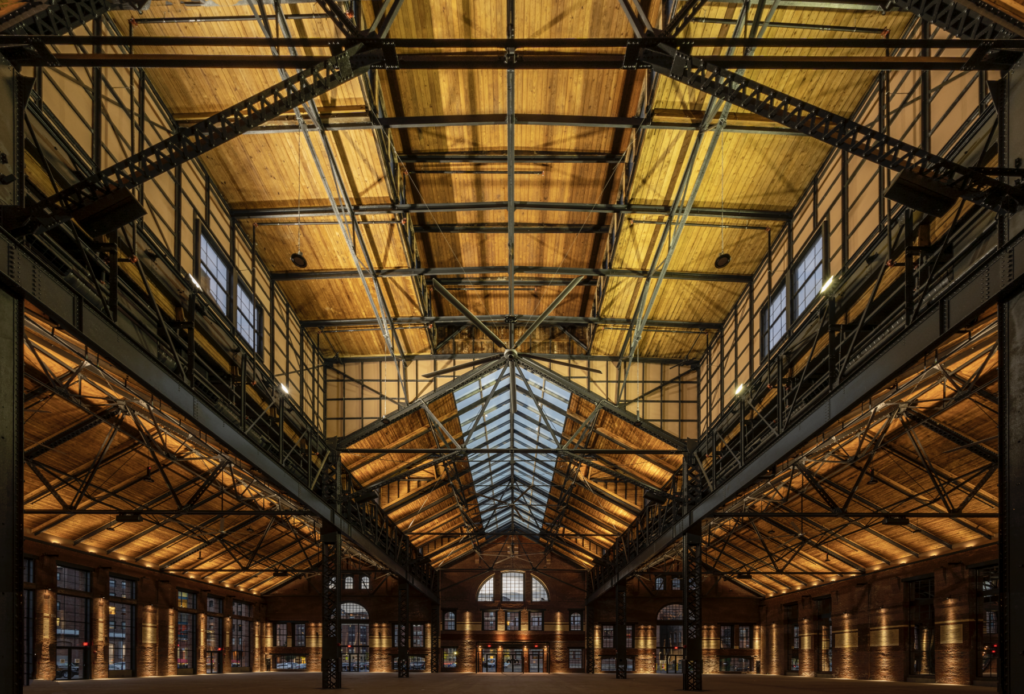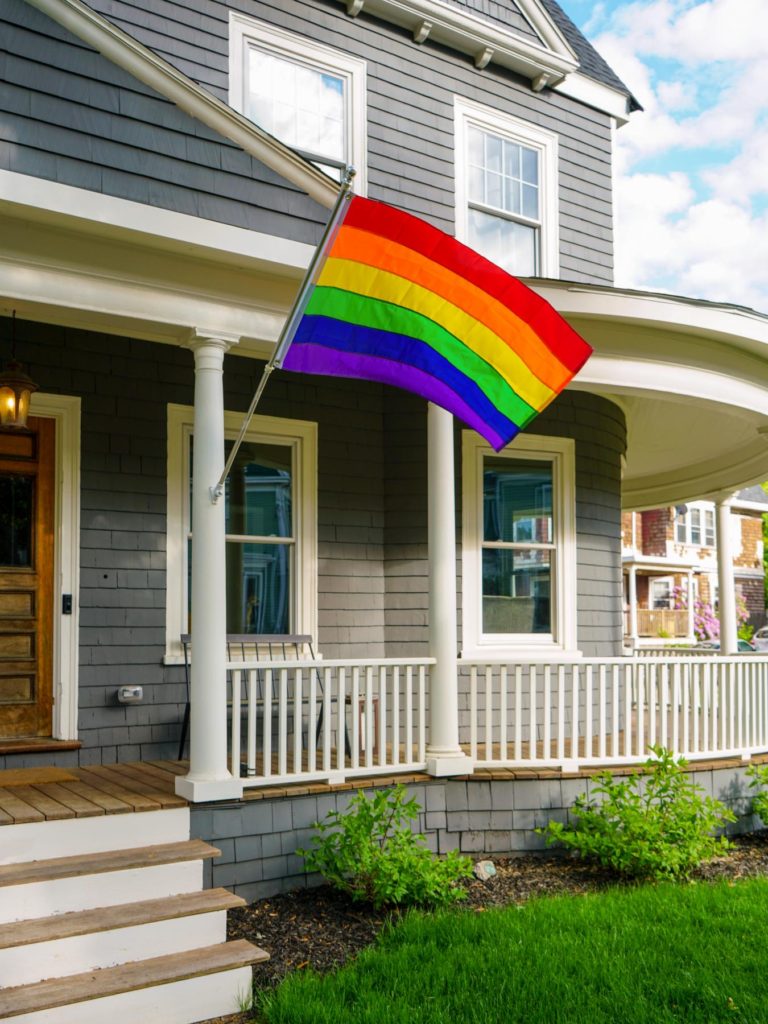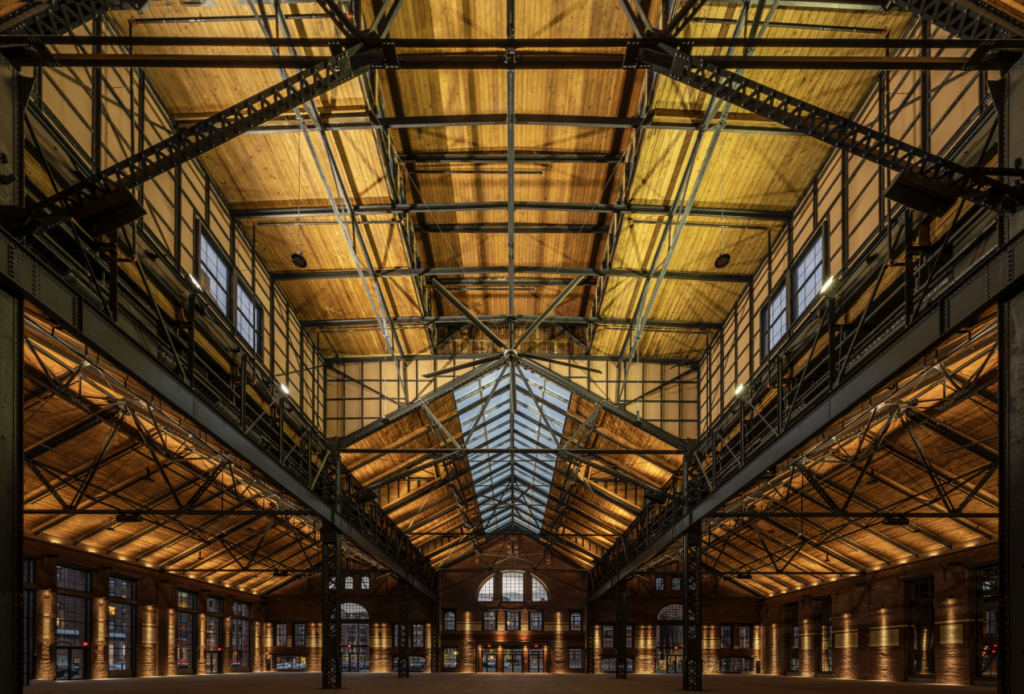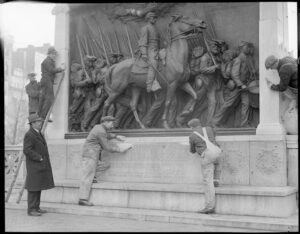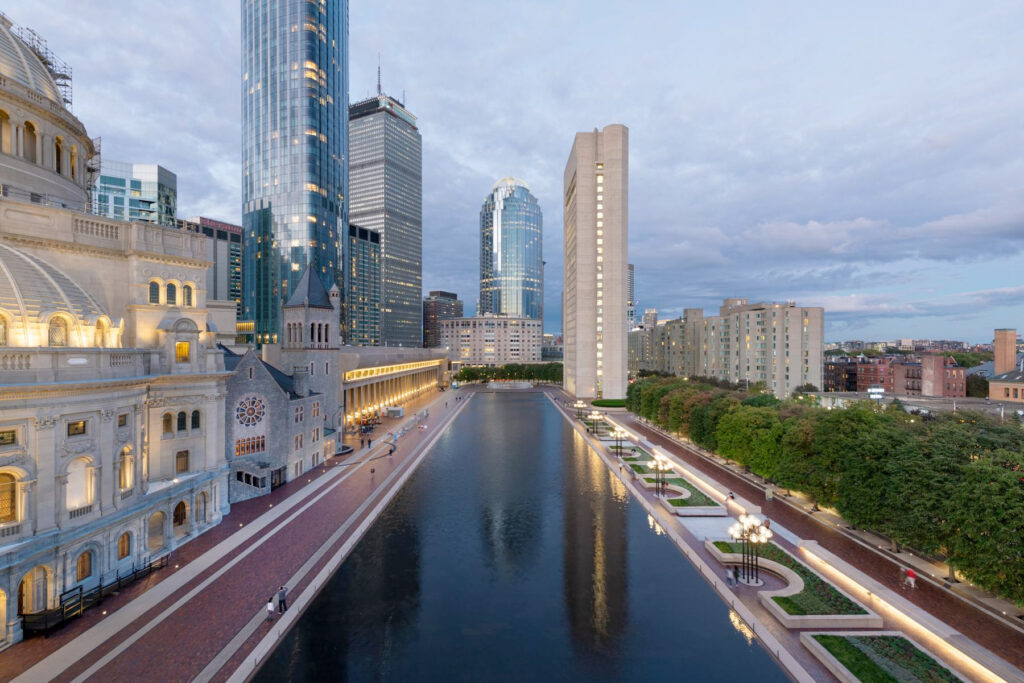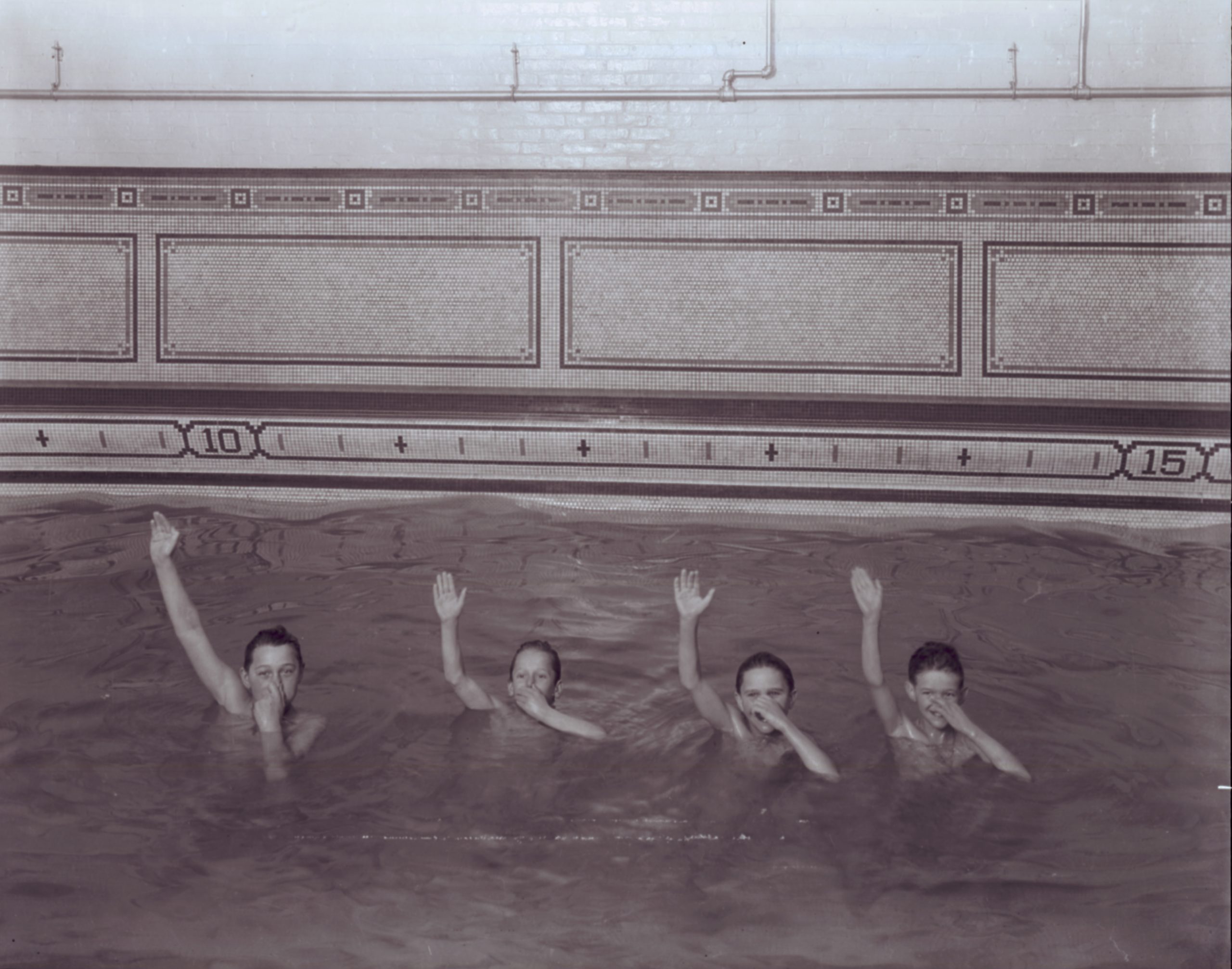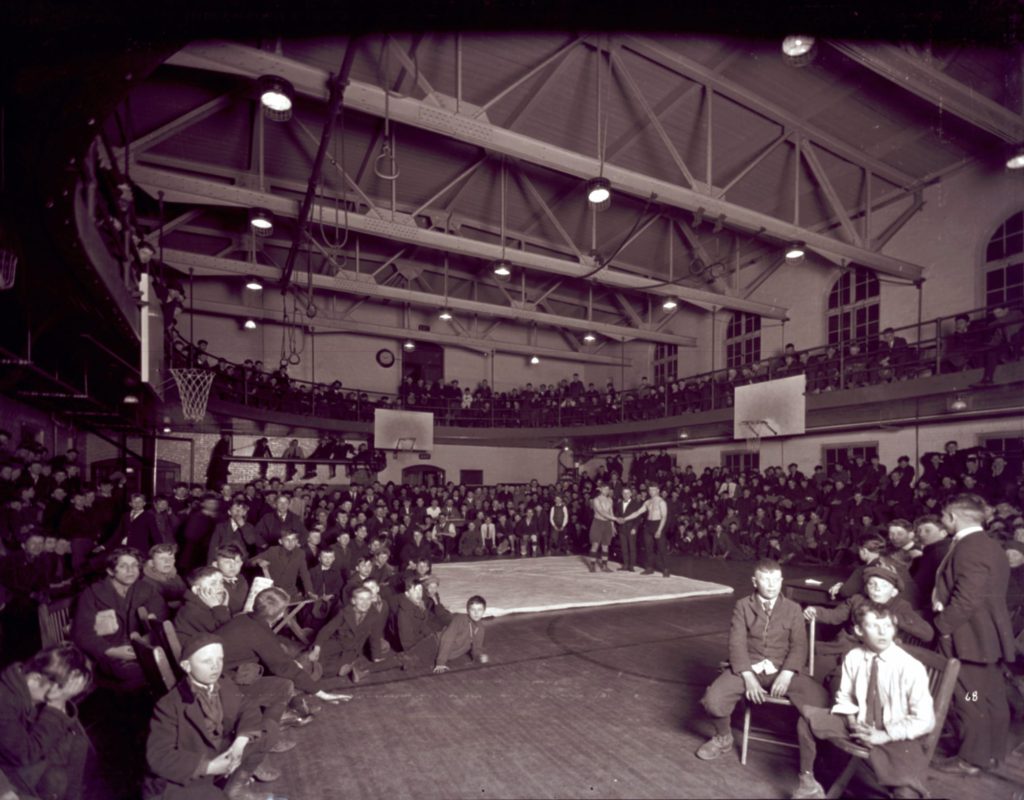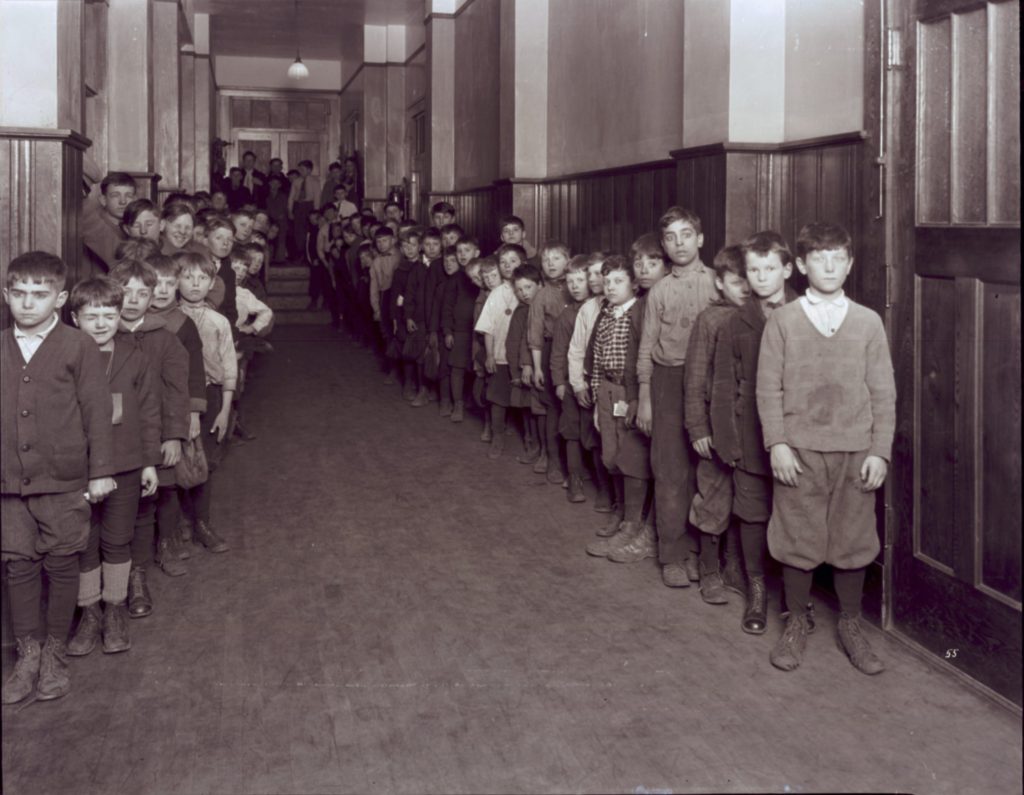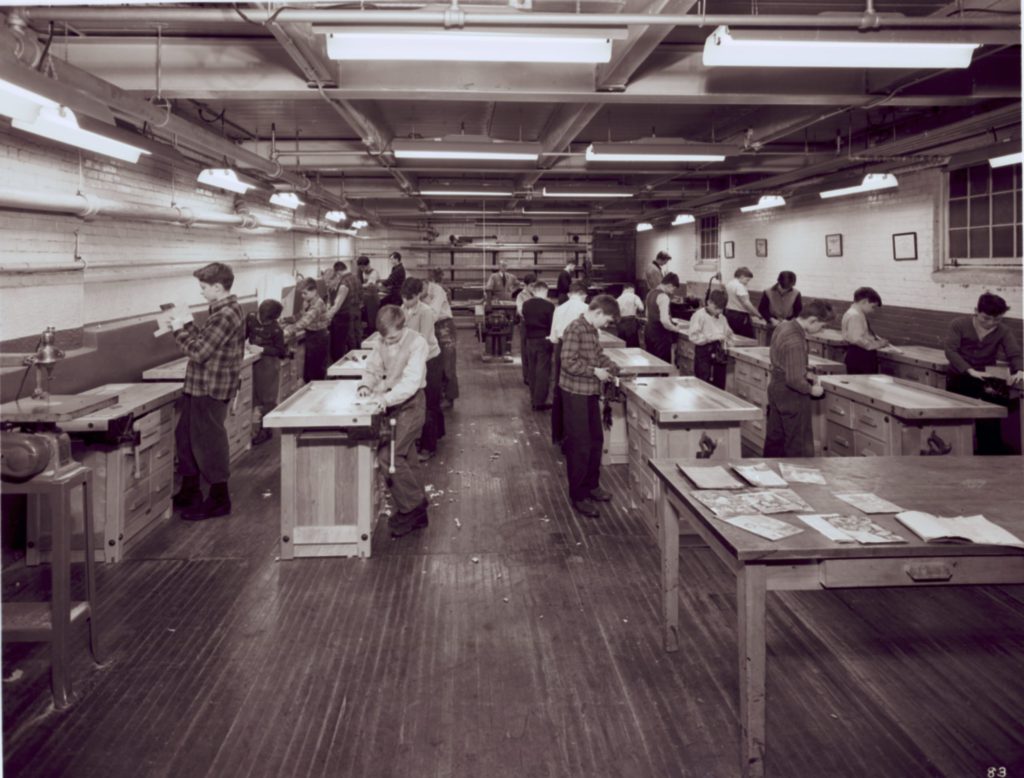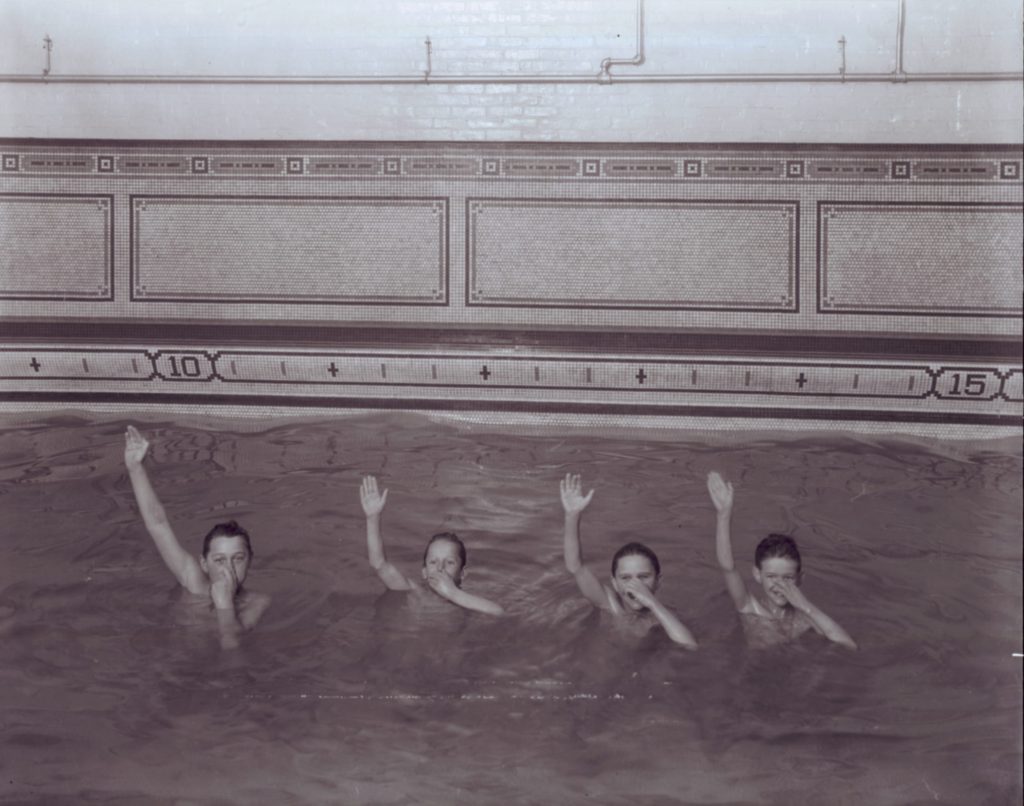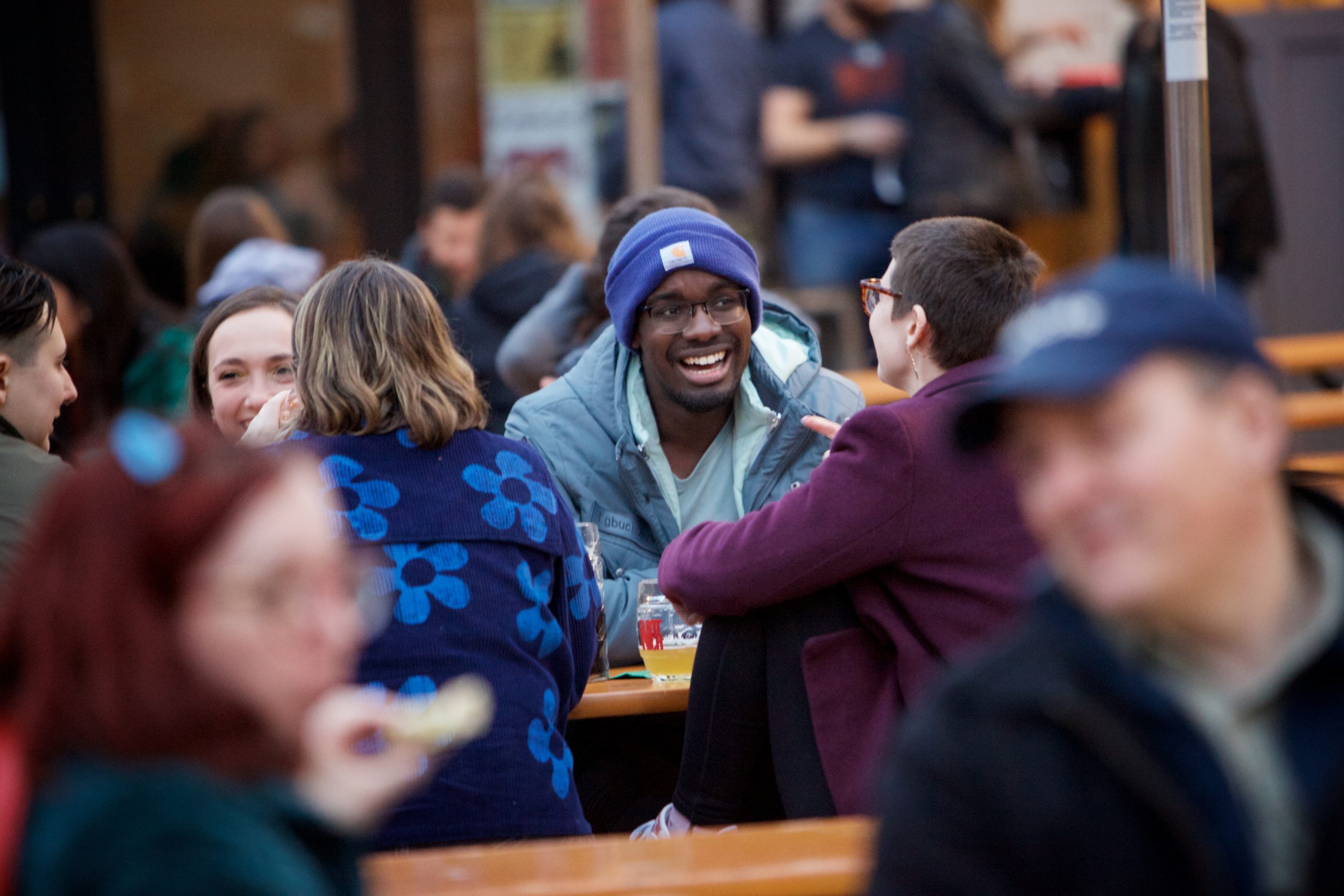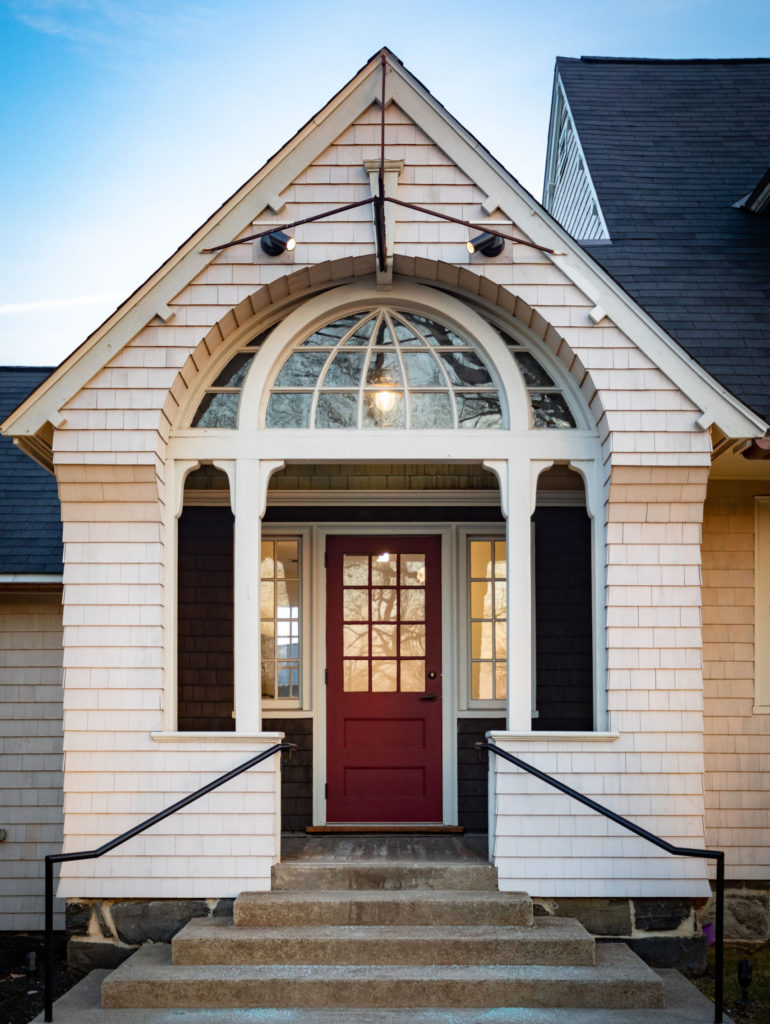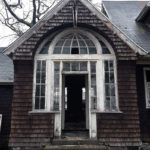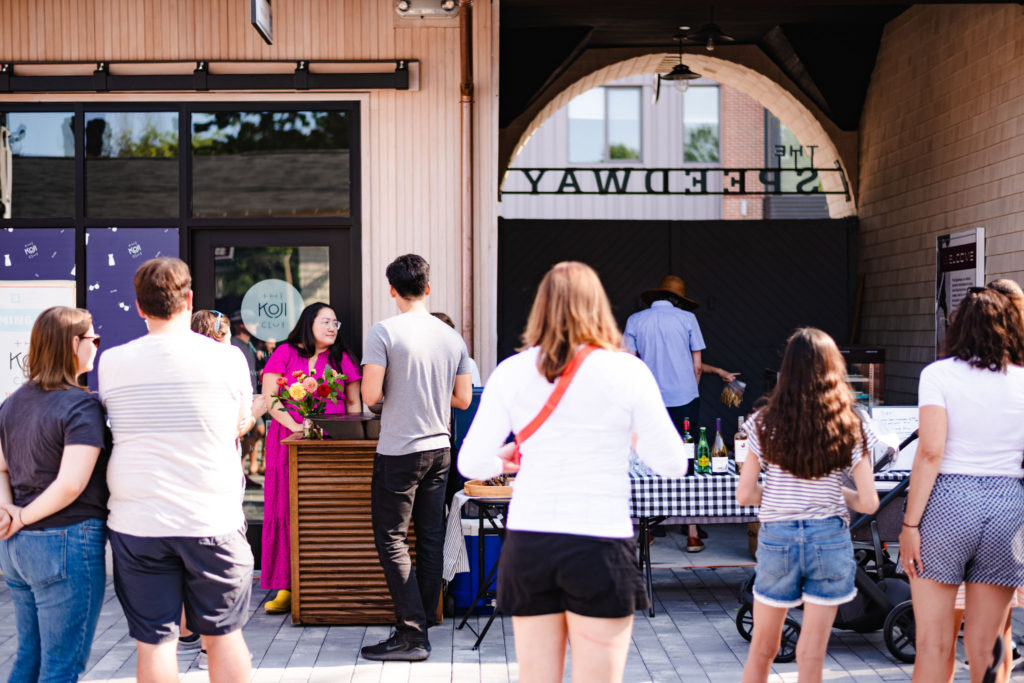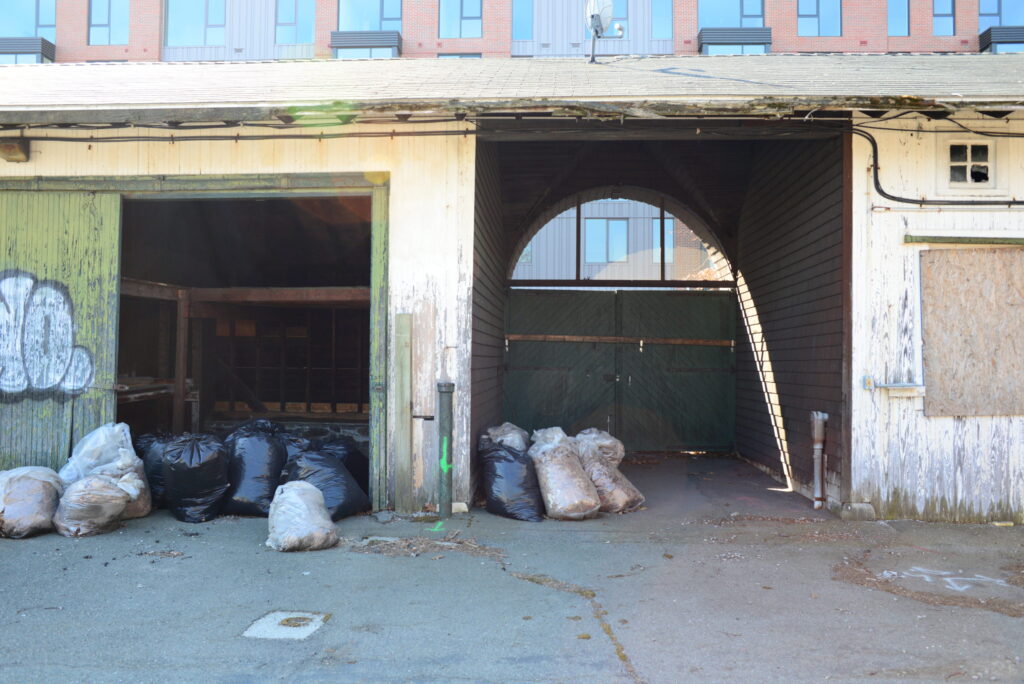2023 Year in Review
It’s been another productive and exciting year at AHF. As we look out of our office windows at the Charles River Speedway, we can see the historic marketplace’s central courtyard trimmed with festive trees and lights. The small business community here is making merry with holiday events and special gifts. Our newest tenants, Rite Tea & Espresso and Pizza Project, have quickly become an integral part of this community, and have made our days even more delicious. The event space at Garage B has been bustling with weddings, end-of-year parties and holiday markets, and the new flexible event space in the upper courtyard, The Annex, has become a great addition to the Speedway’s offerings. The Speedway is definitely worth a visit this holiday season and beyond!
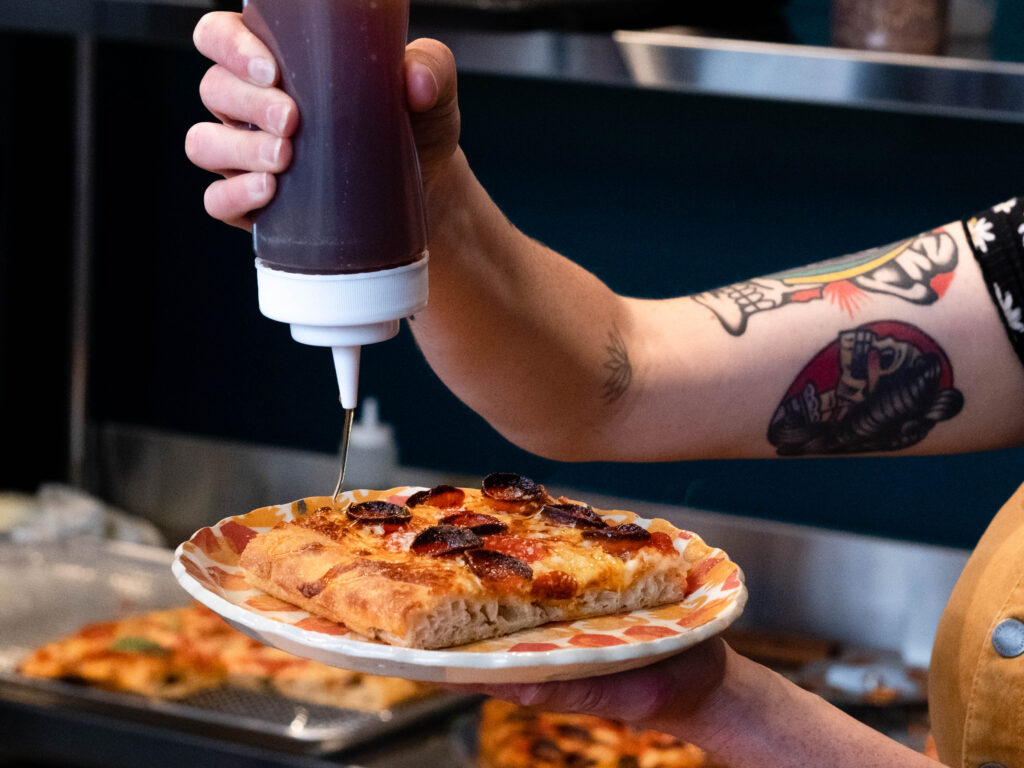

Beyond Brighton, AHF is involved with projects and preservation efforts across the Commonwealth. As 2023 draws to a close, we are happy to share a few highlights.
20 Years of Massachusetts State Tax Credit
2023 brought us the 20th anniversary of the Massachusetts Historic Rehabilitation Tax Credit (MHRTC), a powerful preservation incentive program that has unlocked over 700 projects across the Commonwealth since its inception. Without this program, AHF projects at Washington Mills and Charles River Speedway would never have been possible, and we are grateful to all of those who helped craft and implement what has become a model program for states all over the country. Continued advocacy for the MHRTC has been ongoing through the years, including increasing the cap to meet demand and extending the program’s sunset date, with partners at Massachusetts Historical Commission and Preservation Massachusetts leading the way. We look forward to continuing to access the tax credit for projects of our own and for others that we are helping in our consulting work.
Underutilized Properties Program
Since the program’s inception three years ago, we have worked with various project partners to apply for UPP grant funding to support a range of development activity at their respective sites. This year, we were pleased to support Alander Group’s successful submission for the next phase of their project located at 343 Main Street in Great Barrington. This grant will be used to renovate and convert a historic 22,504-square-foot building in Great Barrington into two retail spaces and 13 units of mixed-income housing. A big congratulations to all the awardees!
Wright Building, Pittsfield
Another project that has benefited from UPP funding is the Wright Building, a long vacant three story former commercial building on North Street in Pittsfield. Following their successful neighboring downtown market rate housing projects at the Onota and Howard Buildings, Allegrone Companies is planning the residential conversion of this long vacant building. Allegrone and AHF are now going through the historic approvals process for the addition of a new construction infill building next to and eventually connecting to the Wright Building which will add 14 more much needed units to the overall project. Awarded $525,000 in UPP funding from FY2023 for life safety improvements, there is great momentum going into the new year. AHF looks forward to continuing to support the project, including helping the Allegrone’s apply for and secure Housing Development Initiative Program Tax Credits, in addition to continuing to shepherd the project through MHC and NPS historic tax credit programs.
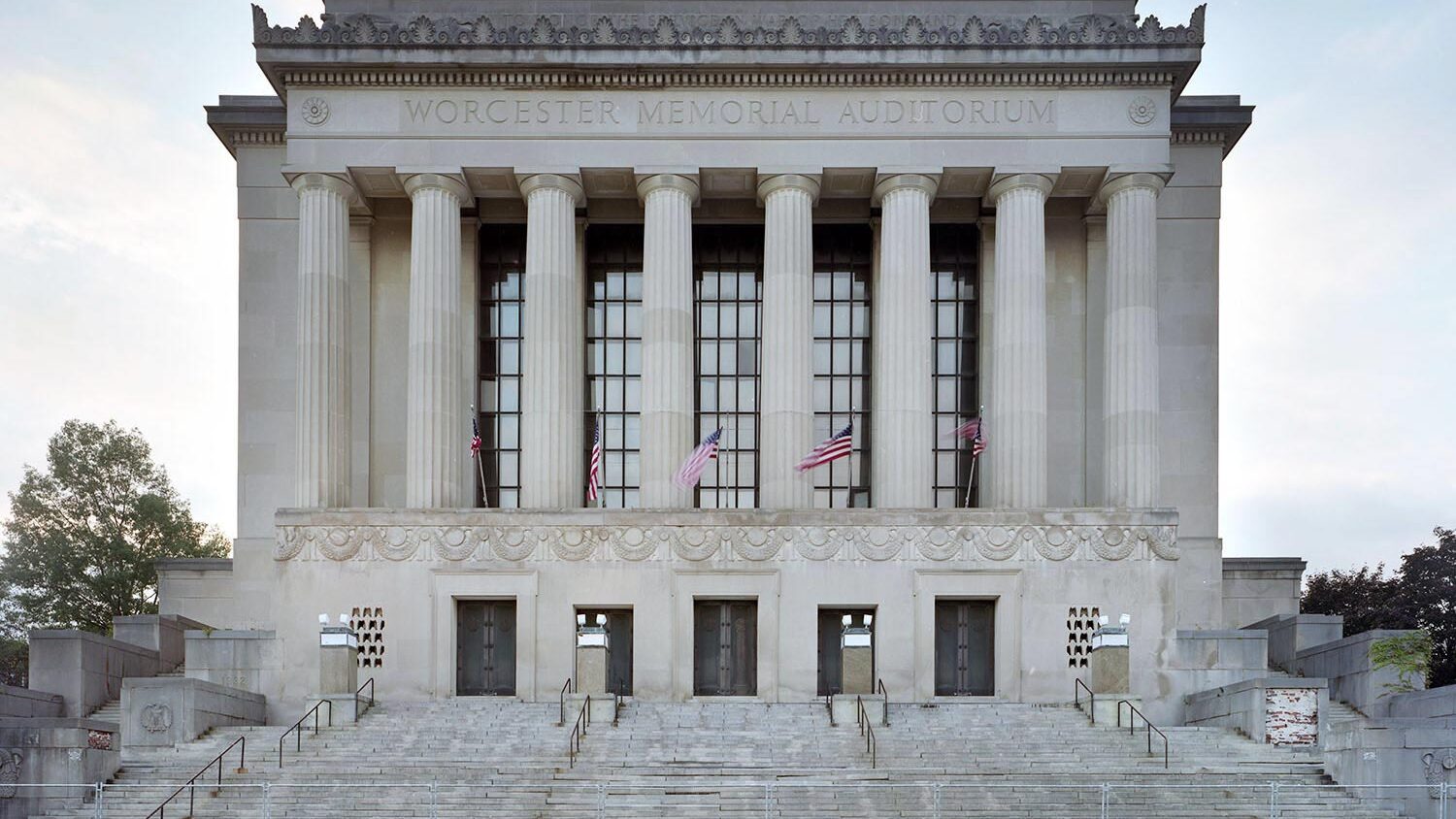
Worcester Memorial Auditorium
The Auditorium project reached new levels of credibility in 2023, turning AHF’s vision into a concrete set of goals and objectives. The Auditorium is closer to redevelopment than it has been at any point in the past 25 years. With the support of CSL International, the project has a realistic operating pro forma and a market analysis for multiple types of entertainment offerings. With the support of DBVW Architects, the design of a modern, tech-forward, entertainment and economic development facility is underway.
In 2024, AHF will unveil new project partners for the Auditorium redevelopment with hopes to begin construction on infrastructure upgrades this year.
Paul Bruhn Grant comes to Massachusetts
We were happy to support the Pioneer Valley Regional Ventures Center’s (PVRVC) application for Paul Bruhn Historic Revitalization Grant funds and were thrilled when they were awarded funding this year. AHF has worked behind the scenes for several years to galvanize engagement statewide to bring this resource to Massachusetts’ rural communities. The grant will support the creation of the Preservation Works in Western Mass subgrant program under the direction of PVRVC.
PVRVC’s new program will begin to close the funding gap for historic properties in rural communities and produce examples of the opportunity that exists to galvanize economic development by restoring and re-using National Register-listed community anchor buildings. The idea is to support economic development through the preservation of historic buildings in towns with fewer than 12,500 residents in Hampshire County, as well as small communities in Hampden and west central and southwest central Worcester counties. We look forward to supporting this endeavor across the western part of our state!
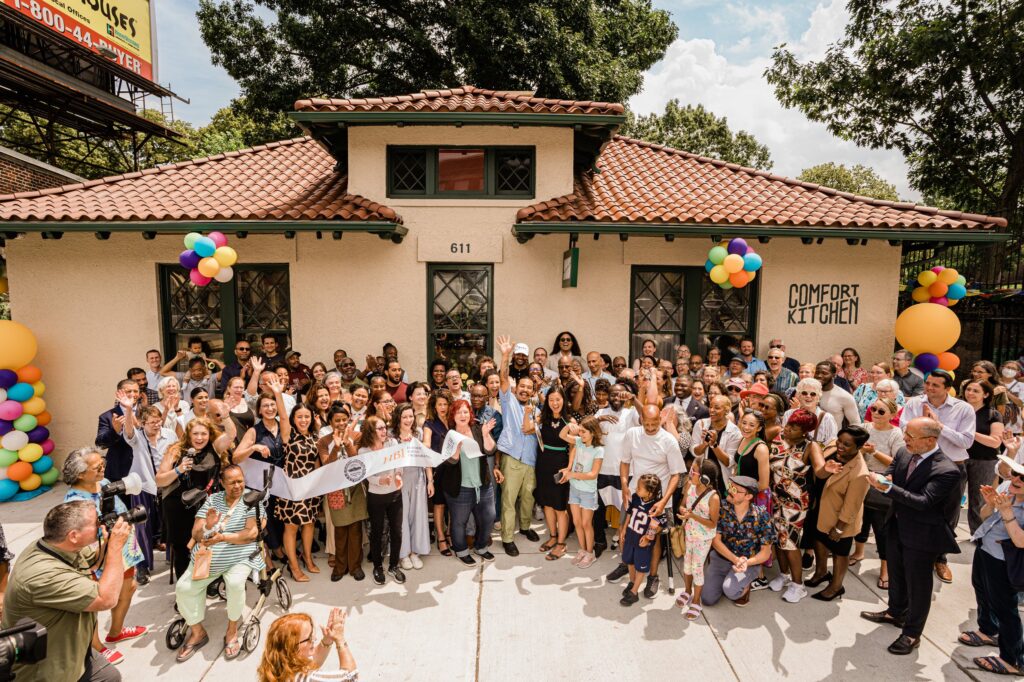
Comfort Kitchen, Boston
This year, we saw the completion and the launch of the award-winning preservation project and new restaurant, Comfort Kitchen, in the Upham’s Corner neighborhood of Dorchester. AHF played a role in this project by providing a loan to Historic Boston, Inc., secured at a below-market fixed rate, to refinance a construction loan following the successful completion of work.
The former trolley system comfort station, a stucco 940-square-foot facility with full basement, underwent a $1.9 million historic rehabilitation with improvements that created Comfort Kitchen, a full-service café with dinner operations. AHF was proud to support community-based development and fund historic preservation projects in Boston’s neighborhoods.
North Schoolhouse, Mount Washington
The Mount Washington Historical Society (MWHS) and the Town of Mount Washington have begun to advance construction plans amidst on-going fundraising efforts. Their goal is to move the historic single room North Schoolhouse to a new and safer location and to restore it for community use as soon as it is financially feasible to do so.
In 2023, AHF supported the town’s applications to two state grant programs. AHF also helped to connect proponents to Mount Washington’s State Representative Smitty Pignatelli, to expand awareness of the project and help identify additional funding sources. Increased awareness of the project has put it on the radar of two private foundations devoted to Berkshire County projects. MWHS applied to both funders in 2023 and have already received promising news. AHF will continue to work alongside the MWHS and the town of Mount Washington in 2024 to advocate for the project and to help close the gap in the construction budget to get this shovel-ready project underway.
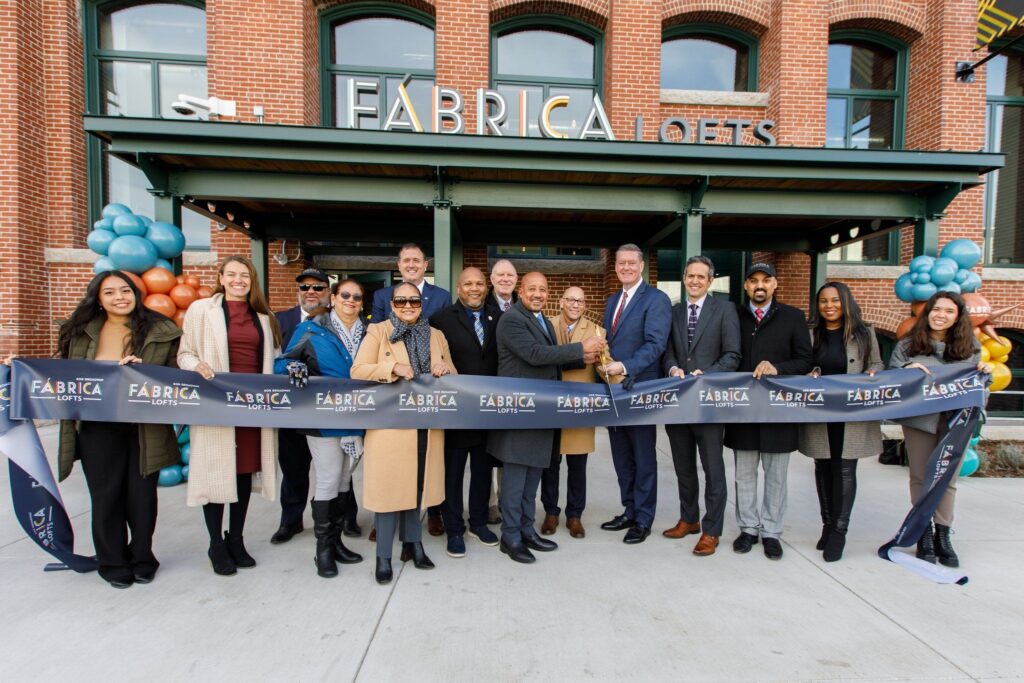
Marriner Mill, Lawrence
Lastly, we were thrilled to see our friends at Trinity Financial officially launch 87 beautiful new units of mixed income housing the Fabrica Lofts in Lawrence. Historically known as Marriner Mill, AHF began working with Trinity on this mill conversion shortly after wrapping up work at Arlington Point, Trinity’s adjacent 100 unit project that anchors the eastern portion of the Arlington Mills Historic District. Helping to meet severe housing needs in the Merrimack Valley, Fabrica Lofts is already 100% leased up, and AHF was pleased to provide tax credit consulting to the project team to help bring this important resource back to active use.

